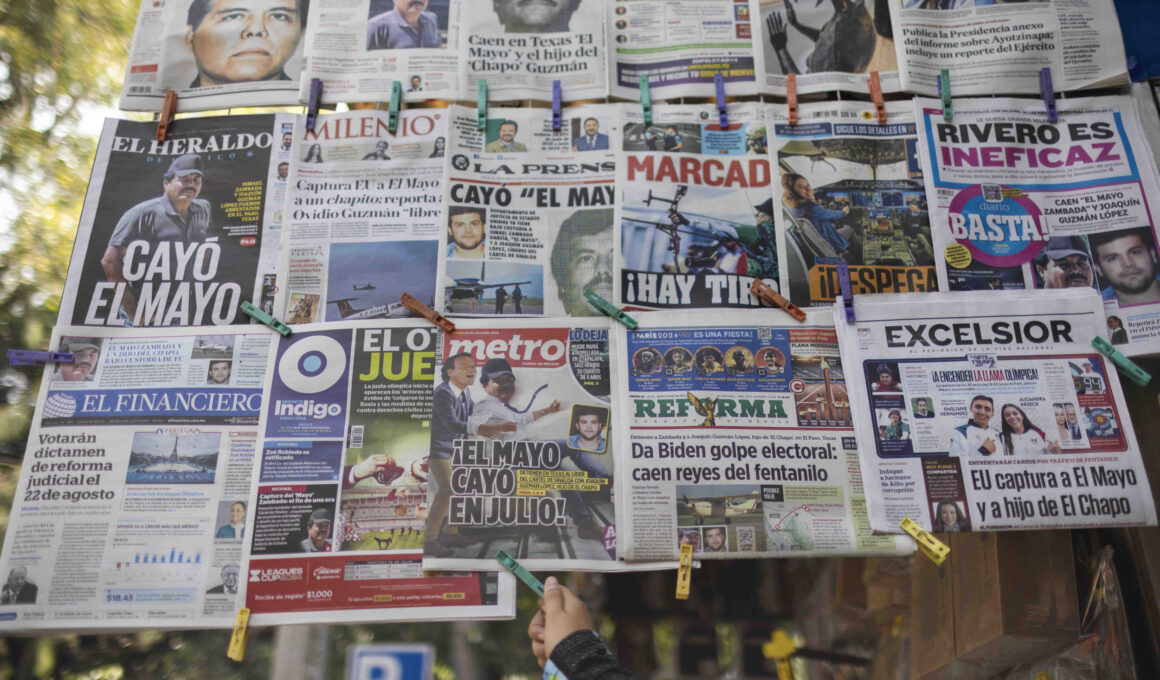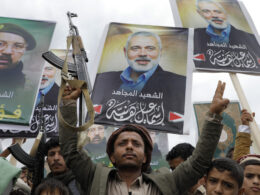Following the arrest of Ismael “El Mayo” Zambada by U.S. authorities, Mexican officials on Sunday said on Sunday they are weighing whether to bring treason charges against those who handed him over, according to the Associated Press (AP).
Zambada, 76, one of the country’s most notorious drug lords in the powerful Sinaloa cartel, was arrested last month after being allegedly abducted and flown to Texas on a private plane.
According to U.S. officials, Joaquín Guzmán López, son of the infamous cartel leader Joaquín “El Chapo” Guzmán, arranged a private plane to fly to the United States to turn himself in but abducted Zambada before leaving Mexico, the AP reported.
Guzmán López, 38, who had seemingly been in negotiations with U.S. authorities for a long time about possibly turning himself in, has pleaded not guilty to drug trafficking and other charges in federal court in Chicago.
Shortly after landing in El Paso, Texas in July, U.S authorities arrested Zambada alongside Guzmán López, who are both charged in the U.S. with various drug crimes.
However, the arrest is now sparking an investigation by the Mexican Attorney General’s Office.
On Sunday, Mexico’s Attorney General’s Office said it had opened a criminal investigation “for the possible crimes of illegal flight, illicit use of airports, immigration and customs violations, kidnapping, treason, and any other crimes that may apply,” the AP reported.
The investigation stems from an article of Mexico’s penal code, which defines treason not only as aiding a foreign enemy but also as abducting someone to deliver them to another country’s authorities.
According to Mexico’s penal code, treason also carries a prison sentence of up to 40 years.
While Guzmán López’s motive in allegedly abducting Zambada remains unclear, some suggest that Guzmán López might have hoped to secure leniency by delivering Zambada to U.S. authorities.
Zambada was indicted in 2012 on murder and conspiracy charges connected with drug trafficking, money laundering and organized crime. One of his top allies and fellow Sinaloa co-founder El Chapo was convicted in federal court in 2019 after being extradited by Mexican authorities and sentenced to life in prison.
After being pursued by the U.S. government for decades, the fifth and most recent superseding indictment against Zambada, filed in February, alleges that he oversaw the importation of “massive quantities of narcotics” from 1989 to 2024.
Zambada is accused of employing individuals to obtain “transportation routes and warehouses” to distribute the illicit drugs in the U.S., along with hit men tasked with carrying out kidnappings and killings in Mexico “to retaliate against rivals who threatened the cartel.”
Following February’s indictment, the Department of Justice offered up to a $15 million award for anyone with information that led to Zambada’s capture.
Announcing last month’s arrest, U.S. Attorney General Merrick Garland warned against the drug organization as he described it as “one of the most violent and powerful drug trafficking organizations in the world.”
“Both men are facing multiple charges in the United States for leading the Cartel’s criminal operations, including its deadly fentanyl manufacturing and trafficking networks,” read Garland’s statement.
Newsweek reached out to the DOJ via online form on Monday for comment.
According to the AP, U.S. officials said they had almost no warning when Guzmán López’s plane landed in El Paso and weren’t expecting Zambada to be aboard the craft.
While the investigation by Mexican prosecutors unfolds, tensions remain between Mexico and the United States over the handling of drug cartel leaders, and the opioid crisis continue with President Joe Biden‘s administration facing immense pressure for his handling of immigration across the southern border. The Drug Enforcement Administration says that illicit fentanyl is primarily manufactured in labs outside of the U.S. and smuggled into the country though Mexico.






